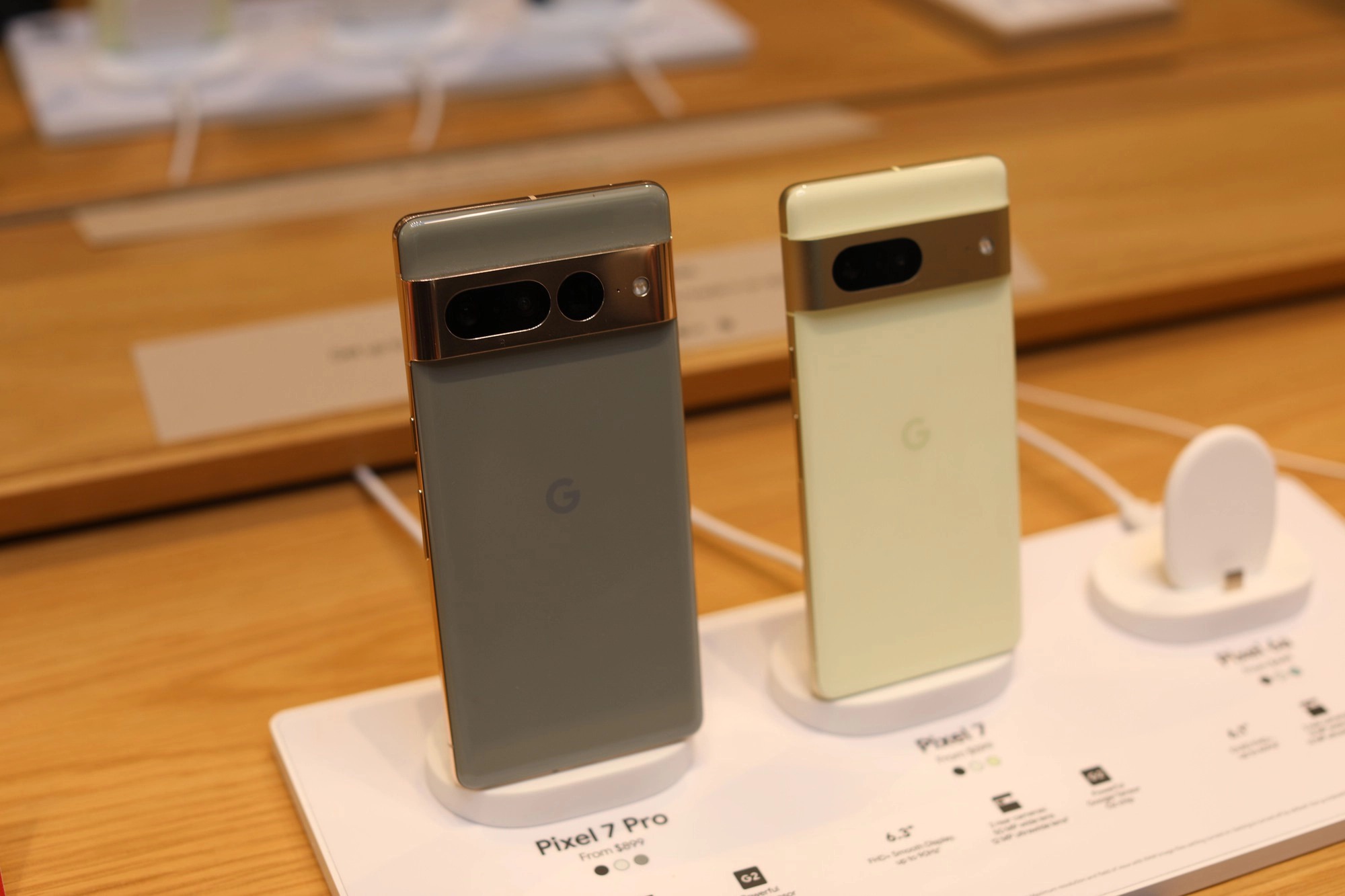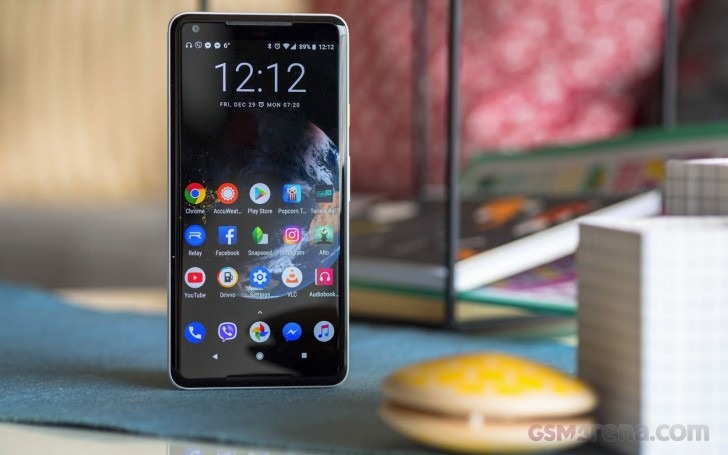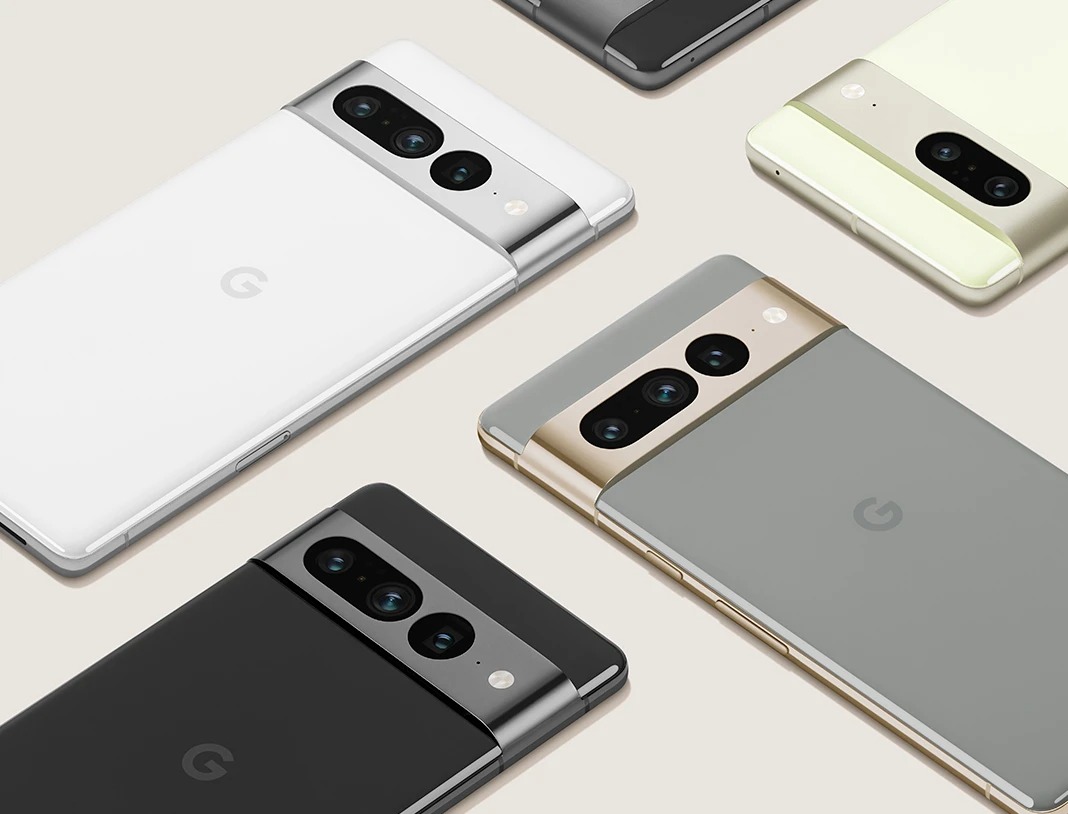Why is Google Pixel not as popular as iPhone or Samsung’s Galaxy line?
- Tram Ho
The Google Pixel 7 and 7 Pro just launched as Google’s best phones, with better camera lenses, software, and features than their predecessors. The company has also added a bunch of Google Assistant features and touted new photography tricks.
Obviously, Google has put a lot of effort into its latest flagship phone. But an equally obvious fact is that it doesn’t seem to get as much attention, as it always does.

Google Pixel 7 and Pixel 7 Pro.
In a world dominated by iPhones and Samsung phones, Google is not a prominent name. Since the first Pixel launched in 2016, the entire lineup has sold 27.6 million units, according to data from analytics firm IDC. That’s one-tenth of the 272 million Samsung phones shipped in 2021 alone. Apple is no slouch either, having shipped 235 million phones in the past year.
This makes the Pixel a “paradox” of the mobile business. It is backed by the company that sets the standards for Android, the most popular mobile operating system in the world, as well as by one of the most famous and successful companies in the world. However, it is still far behind its key competitors and is still simply a “breakthrough” for the richness of the smartphone market.
It’s a bit confusing that Google’s phones sell so poorly, as the Pixel line is generally preferred by reviewers and consumers (at least those who’ve heard of them). Furthermore, they were the first phones to get new Android versions and features months to years ahead of other phones.
But, a series of misguided strategic decisions and moves have put Google in this penultimate position.
User self-limit

It made sense for Google to tie up the US carrier Verizon as an exclusive partner when it first launched the Pixel. In the past, the exclusive partnership between Google, Motorola and Verizon helped bring Android smartphones into the mainstream.
But that exclusivity also means fewer people can buy the phone in the US than when it first launched. And this is a strategic mistake that has disastrous consequences in the long run. Consumers had been able to buy Apple and Samsung phones from any carrier for years before Google released its first Pixel in 2016, so catching Pixel users’ first three-year commitment being tied to Verizon limited the brand’s reach to customers. And these people simply had to choose between an iPhone and a Galaxy phone.
It is that limited reach that has kept the Pixel out of the minds of consumers as the smartphone market shrinks. Even without competition from LG, which stopped selling phones in 2021, and hard-to-reach Chinese brands in Western markets, the Pixel is still less known than the iPhone and Samsung Galaxy.
“Despite the Pixel’s rave reviews, Google’s biggest challenge in gaining market share is its marketing spend and presence with inferior carriers, both of which are currently dominated by Apple and Samsung”, Nabila Popal, director of research at IDC, said.
The Pixel isn’t the only phone locked to a single carrier. But times have changed, and when Google finally realized and opened up its phones to carriers other than the Pixel 4 in 2019, they were too far behind the competition.
Hardware is behind

It wasn’t until this year that Google put more emphasis on Pixel hardware.
The iPhone and Samsung’s flagships have entrenched themselves in the public’s mind as devices that push the boundaries of both software and hardware, with powerful chipsets and plenty of camera lenses. Google’s smartphone is still focused on software with mediocre specs and camera system. It even uses the same primary camera sensor from the Pixel 2 to Pixel 5 versions.
Despite annual improvements to its photography software to try to make up for it, Google’s phones still have a reputation for falling behind other flagship models in terms of hardware. Essentially, it’s more appealing to fans than to general consumers, as this software-intensive approach doesn’t stand out from the specs-wise superiority of an iPhone or Galaxy.
Of course, Google later corrected the mistake by including its improved camera system and new in-house Tensor chipset in last year’s Pixel 6 phones, and even better hardware in the phones. New Pixel 7. Google has come up with features that are more camera-focused, as well as innovative in removing unwanted people from photos, or helping visually impaired users take selfies.
Identity crisis

However, Google still doesn’t have a strong identity for its high-end smartphones that would set them apart from the iPhone and Samsung’s Galaxy series devices. For years, fans and social media users have been Pixel’s biggest supporters. They call them phones with good cameras, but even Google doesn’t know what their devices do best. For example, the company described its Pixel 6 as “the phone for you,” then touted the customization features available on all phones running Android 12.
“Part of Google’s challenge is that smartphones are a mature market and consumers are happy with Samsung and Apple.” Avi Greengart, analyst at Techsponential, said.
Greengart explained that catching up and replacing Samsung may not be Google’s goal either, as doing so could destabilize the Android operating system in general. Both phones use the same operating system, so Samsung’s continued dominance in the phone market is still a win for Google. As long as Pixel phones sell well enough to be profitable, Google will likely continue to make them.
The US market is the most promising place for Pixel sales. Without low-cost Android phones from Xiaomi and others, with LG exiting the game, Pixel grew to 2% in the North American market in Q2 2022, from 1% in the same period in 2021. That’s a blessing, whether compared to Apple, which owns 52% of the market, or even Samsung, which has just over 25% of the US market.
Anthony Scarsella, analyst at IDC said: “Pixel will continue to not be a popular brand like Galaxy.”
Refer to GSMArena, Cnet
Source : Genk
